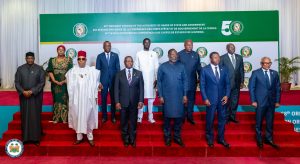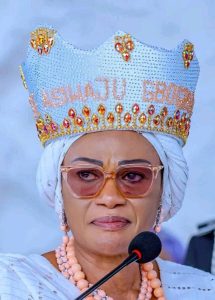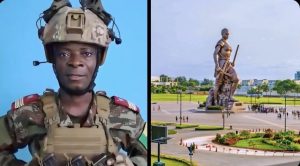Ose Anenih, son of the late Chief Tony Anenih, has issued a strongly worded rebuttal to what he describes as an “untrue” account of his father’s role in the historic June 12, 1993, presidential election annulment, as claimed in a recent statement from the Presidency. In a detailed response shared on X, Ose Anenih accused the Presidency of misrepresenting historical events and using “uncouth language” to tarnish his father’s reputation.
Chief Tony Anenih, a prominent political figure and former National Chairman of the Social Democratic Party (SDP), was a key player during the turbulent period following the annulment of the June 12 election, widely believed to have been won by Chief Moshood Abiola. The election’s cancellation by then-military ruler General Ibrahim Babangida sparked widespread unrest and remains a pivotal moment in Nigeria’s democratic history.
Addressing a letter to “Bayo Onanuga,” a media representative of the Nigerian Presidency, Ose Anenih clarified his father’s interactions with Abiola. He recounted a meeting in Benin City where Chief Anenih confronted Abiola for fleeing the country after the annulment, leaving SDP supporters to defend his mandate. According to Ose, Abiola responded cryptically, saying, “A bird does not tell his friends that the stone is coming.”
Ose further revealed his father’s warnings to Abiola about his dealings with General Sani Abacha, who later seized power in a military coup. Anenih had cautioned Abiola that aligning with Abacha would jeopardry his chances of reclaiming his mandate. Abiola, however, dismissed the advice, reportedly stating, “Whether you go by plane or by car, what matters is that you get to Kano.” Ose explained that Abiola viewed the Interim National Government (ING), negotiated by the SDP and the National Republican Convention (NRC), as a “road trip,” while he saw Abacha’s coup, which he publicly supported, as a “private jet.”
The rebuttal also addressed claims regarding President Bola Tinubu’s role during the June 12 saga. Ose noted that his father, in his 260-page memoir My Life and Nigerian Politics, acknowledged Tinubu’s early criticism of delays in announcing the election results but made no further mention of him. Ose expressed surprise at the Presidency’s portrayal of Tinubu’s visit to Abacha post-coup as a “mark of honour.”
Urging a focus on contemporary issues, Ose lamented the energy expended on revisiting events over 30 years old, particularly when Nigeria faces pressing challenges. He pointed to recent suicide bombings in Kano and Borno, suggesting the Presidency’s efforts would be better spent addressing such tragedies.
Ose offered to send the Presidency a copy of his father’s memoir to prevent future “ahistorical misadventures” and called for an end to the “toxicity” he associated with the previous administration. He also noted that many key figures from the June 12 era, including General Babangida, General Abdulsalami Abubakar, and Kola Abiola, are still alive and could provide clarity on the events.
The Presidency has yet to respond to Ose Anenih’s statement.






